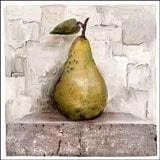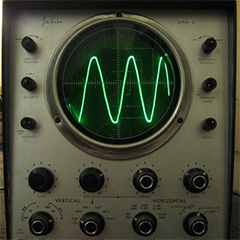Progarchives.com has always (since 2002) relied on banners ads to cover web hosting fees and all.
Please consider supporting us by giving monthly PayPal donations and help keep PA fast-loading and ad-free forever.
/PAlogo_v2.gif) |
|
Post Reply 
|
| Author | ||
Atavachron 
Special Collaborator 

Honorary Collaborator Joined: September 30 2006 Location: Pearland Status: Offline Points: 64338 |
 Topic: Historical Context in Music Appreciation Topic: Historical Context in Music AppreciationPosted: October 08 2015 at 22:37 |
|
|
If you don't know John Coltrane's 'My Favorite Things' was first a Rodgers & Hammerstein bit written for The Sound of Music and sung by Julie Andrews, can you fully appreciate the artistry of both versions and discern the startling newness and irony of Coltrane's interpretation? "Everyone knows 'My Favorite Things' was from a Broadway musical", you insist. But do they? And what of all the other classical, jazz, and showtune quotes, lifts and homages one hears in progressive rock & fusion? Are those who don't make the connections missing out; Does it even matter?
|
||
|
"Too often we enjoy the comfort of opinion without the discomfort of thought." -- John F. Kennedy
|
||
 |
||
zravkapt 
Special Collaborator 

Honorary Collaborator Joined: October 12 2010 Location: Canada Status: Offline Points: 6446 |
 Posted: October 09 2015 at 16:21 Posted: October 09 2015 at 16:21 |
|
In most cases probably not. How many people know (or care) that Sinatra's "My Way" originated as a folk song from Quebec? To some that might be significant information, but it wouldn't add or take away anything to a lot of people who already liked the tune.
|
||
|
Magma America Great Make Again
|
||
 |
||
Atavachron 
Special Collaborator 

Honorary Collaborator Joined: September 30 2006 Location: Pearland Status: Offline Points: 64338 |
 Posted: October 09 2015 at 17:12 Posted: October 09 2015 at 17:12 |
|
|
- - "Je vais vivre comme d'habitude"
|
||
|
"Too often we enjoy the comfort of opinion without the discomfort of thought." -- John F. Kennedy
|
||
 |
||
TheGazzardian 
Prog Reviewer 

Joined: August 11 2009 Location: Canada Status: Offline Points: 8443 |
 Posted: October 09 2015 at 17:28 Posted: October 09 2015 at 17:28 |
|
No. All that matters is how I react to music when I hear it. There is no 'right' way.
|
||
 |
||
Atavachron 
Special Collaborator 

Honorary Collaborator Joined: September 30 2006 Location: Pearland Status: Offline Points: 64338 |
 Posted: October 09 2015 at 21:26 Posted: October 09 2015 at 21:26 |
|
|
^ You don't think if someone has never heard the original, the reinterpretation can be fully appreciated for more than just a good piece of music? Certainly one of the pleasures and most profound aspects of 'My Favorite Things', especially at the time, was Coltrane's blasphemous destruction of and yet deep affection for that song. Was this not both an important moment and one not fully grasped unless the context was clear? It's not about technical knowledge or musical snobbery, it's about the experience of progressive music, in this case the jazz experience.
|
||
|
"Too often we enjoy the comfort of opinion without the discomfort of thought." -- John F. Kennedy
|
||
 |
||
Replayer 
Forum Senior Member 

Joined: November 04 2013 Location: United States Status: Offline Points: 356 |
 Posted: October 10 2015 at 01:24 Posted: October 10 2015 at 01:24 |
|
|
While ideally any musical recording should be enjoyed on its own merits, there are times when being knowledgeable of historical context can be of great value in appreciating the song. If the work is a parody, then it becomes much more important to know
the original version to understand what the object of parody is, since the source of the humor comes from comparing to the original.
Growing up I watched Looney Tunes cartoons and I enjoyed them thoroughly, but years afterwards I was surprised at the number of contemporary references and puns that escaped me. Would knowing songs and actors from the 40s have helped me enjoy them more? I still appreciated the cartoons for their slapstick, but I feel I would have enjoyed them more if I understood the allusions. Another example is humor aimed at adults in animated movies. It's also important to be aware of the originals and influences lest we give to much credit for originality to the band that covers the composition. Led Zeppelin's appropriation of blues songs is well known, as is the fact that the introduction to Child in Time is lifted from Bombay Calling by It's a Beautiful Day. Also, I think it would a sad if someone was familiar with classical music only though ELP's Pictures at an Exhibition, Wakeman's Hall of the Mountain King excerpt, Rainbow's Difficult to Cure (9th Symphony). I think it's a good idea to familiarize ourselves with the influences of our favorite musicians. Music is not composed in a vacuum, so I don't think it should be listened to in isolation either. On another hand, I realize that it can take time and money to research the historical context and influences. If the quoted work is not an entire song, but a short instrumental passage, it can be difficult to even know a famous work was referenced, though the Internet can greatly help in this regard. As the saying goes, "those who cannot remember the past are condemned to repeat it" and a reinvention of disco would be horrid.  |
||
 |
||
Atavachron 
Special Collaborator 

Honorary Collaborator Joined: September 30 2006 Location: Pearland Status: Offline Points: 64338 |
 Posted: October 10 2015 at 01:37 Posted: October 10 2015 at 01:37 |
|
|
^
 Speaking of Looney Tunes, ever heard of Raymond Scott? -- http://www.progarchives.com/album.asp?id=32932 |
||
|
"Too often we enjoy the comfort of opinion without the discomfort of thought." -- John F. Kennedy
|
||
 |
||
Icarium 
Forum Senior Member 

VIP Member Joined: March 21 2008 Location: Tigerstaden Status: Offline Points: 34050 |
 Posted: October 10 2015 at 03:59 Posted: October 10 2015 at 03:59 |
|
|
I like the Fugees version of Killing Me Softly better then the original, and im fullt awarere of it but my apreciation for Lauren Hills vocals hits gloser to my heart pump.
|
||
 
|
||
 |
||
Replayer 
Forum Senior Member 

Joined: November 04 2013 Location: United States Status: Offline Points: 356 |
 Posted: October 10 2015 at 11:47 Posted: October 10 2015 at 11:47 |
|
|
Thanks for the recommendation, Atavachron. I'll the album (and David Bagsby) to my list.
On the subject of covers, I enjoy ones by Cream, Deep Purple Mk 1, Yes' version of Simon & Garfunkel's America, Rainbow's blistering version of the Yardbirds' Still I'm Sad. The bands expand on the songs and stamp their own musical identity on them. |
||
 |
||
presdoug 
Forum Senior Member 

Joined: January 24 2010 Location: Canada Status: Offline Points: 8068 |
 Posted: October 10 2015 at 15:41 Posted: October 10 2015 at 15:41 |
|
|
I am very much interested in when something was recorded, and I have memorised the year of recording of all my almost 2,000 prog, jazz and classical CD music collection. I like putting a recording in historical context not only to previous recordings of that music, but what was happening in the world at that particular time. I guess it's because I have always been interested in history. I would be blind as a bat if I didn't know when something was recorded.
|
||
 |
||
Rando 
Forum Senior Member 
Joined: April 08 2006 Location: Bay Area Status: Offline Points: 472 |
 Posted: October 11 2015 at 00:03 Posted: October 11 2015 at 00:03 |
|
I've always believed in giving credit where credit is due. As somebody mentioned that there is no "right way," but there certainly was the "original-first way" a piece of music was made - As a musician I've spent most of my life trying to inform, (educate?), make aware of, these musical connections - Maybe the music & advertising industry is trying to brainwash us into becoming these attention-deficit listeners by bombarding us with television commercial laden with cover versions of classic rock songs, classical music, and jazz, made into jingles! My friends already know that if I'm there with them watching a game or whatever else, I will tell them about any piece of music included in a commercial - I discovered that it did matter to them - At least I felt I did my small part in helping that out With John Coltrane's version of "My Favorite Things," I'm reminded of Hendrix's version of "The Star-Spangled Banner" he played at Woodstock - I think that one did matter to a lot of people...  |
||
|
- Music is Life, that's why our hearts have beats -
|
||
 |
||
Atavachron 
Special Collaborator 

Honorary Collaborator Joined: September 30 2006 Location: Pearland Status: Offline Points: 64338 |
 Posted: October 11 2015 at 00:13 Posted: October 11 2015 at 00:13 |
|
|
^ Yes, the Banner is a great example
|
||
|
"Too often we enjoy the comfort of opinion without the discomfort of thought." -- John F. Kennedy
|
||
 |
||
Dean 
Special Collaborator 

Retired Admin and Amateur Layabout Joined: May 13 2007 Location: Europe Status: Offline Points: 37575 |
 Posted: October 11 2015 at 05:29 Posted: October 11 2015 at 05:29 |
|
Absolutely, and context is most important here - time, place and audience all contribute to that context - it's an anti-[Vietnam]-war protest and far from patriotic (unlike say Queen's staid rendition of God Save The Queen or ELP's vanilla version of Jerusalem) yet it is Hendrix declaring "I am an American and this is the land I love": from a reverent and respectful intro he is literally and figuratively shredding the anthem in a wave of dive bombing and explosions that culminates in a single phrase of the tune being cruelly mutated into a distorted satire of the military "Taps" refrain before bursting out into a wistful cry for the "land of the free". It was in that context, and in that moment, a powerful statement, and that I feel was lost on those who would later copy and mimic Hendrix's interpretation (even, I am sad to say, The Groundhogs, whose shred version of Amazing Grace misses the point by a country mile).
|
||
|
What?
|
||
 |
||
Dean 
Special Collaborator 

Retired Admin and Amateur Layabout Joined: May 13 2007 Location: Europe Status: Offline Points: 37575 |
 Posted: October 11 2015 at 06:20 Posted: October 11 2015 at 06:20 |
|
|
I was on a bit of a Bonzo Dog Do Da Band kick last week as I had a make a 400 mile round-trip so decided to play their first five albums consecutively in chronological order to alleviate the monotony of motorway driving. I've played each of them sporadically over the past 40 years and never considered them in any historic context or as anything other than a more surreal version Spike Jones and his City Slickers (not to be confused with Spike Jonze). Essentially I saw them as a comedy act born during the Psychedelic era whose parodies were nothing but harmless light relief - my first introduction to them was as an 11 year old kid watching them perform on children's tv in 1968 - but I now appreciate they were much darker than that. For example 'Death Cab of Cutie' (as featured in the Beates Magical Mystery Tour during the strip-club scene) has a wickedly dark lyric sung by Stanshall as a louche Elvis parody, which in itself is the least offensive of many of the savage parodies they "got away with", most of which would be considered to be extremely non-PC and outrageously unacceptable today: really - 'Look Out There's a Monster Coming' is a calypso sung in black-face that is cringe-worthy in the extreme and very uncomfortable listening, yet that song was broadcast on prime-time tv for the amusement of children.
|
||
|
What?
|
||
 |
||
Atavachron 
Special Collaborator 

Honorary Collaborator Joined: September 30 2006 Location: Pearland Status: Offline Points: 64338 |
 Posted: October 11 2015 at 16:34 Posted: October 11 2015 at 16:34 |
|
Those bad interps are grating, an unfortunate byproduct of the huge waves of influence Hendrix had and still has. There were parallels to what Coltrane and Hendrix were doing; both black Americans artistically peaking at a time of social upheaval, deconstructing traditional musics in ways previously unknown, and becoming the preeminent leaders of their craft. |
||
|
"Too often we enjoy the comfort of opinion without the discomfort of thought." -- John F. Kennedy
|
||
 |
||
Rando 
Forum Senior Member 
Joined: April 08 2006 Location: Bay Area Status: Offline Points: 472 |
 Posted: October 11 2015 at 18:12 Posted: October 11 2015 at 18:12 |
|
|
Certainly there were the social impact aspects of Coltrane & Hendrix's covers, as there were many more and many more to come. Closer to Prog we cannot ignore Keith Emerson (The Nice & EL&P) classical cover contributions of Copland's Hoedown, Mussorgsky's Pictures At An Exhibition, Tchaikovsky's Pathetique, Ginastera, etc. Procol Harem's classical quotes, and even Rick Wakeman's Hallelujah quote - On a more Rock note there was Peter Gabriel's cover of The Beatles Strawberry Fields Forever-  |
||
|
- Music is Life, that's why our hearts have beats -
|
||
 |
||
presdoug 
Forum Senior Member 

Joined: January 24 2010 Location: Canada Status: Offline Points: 8068 |
 Posted: October 11 2015 at 20:11 Posted: October 11 2015 at 20:11 |
|
|
As an ELP rarity, I heard a live bootleg where Emerson had transcribed the beginning of the second movement of Copland's Third Symphony.
|
||
 |
||
Post Reply 
|
|
| Forum Jump | Forum Permissions  You cannot post new topics in this forum You cannot reply to topics in this forum You cannot delete your posts in this forum You cannot edit your posts in this forum You cannot create polls in this forum You cannot vote in polls in this forum |